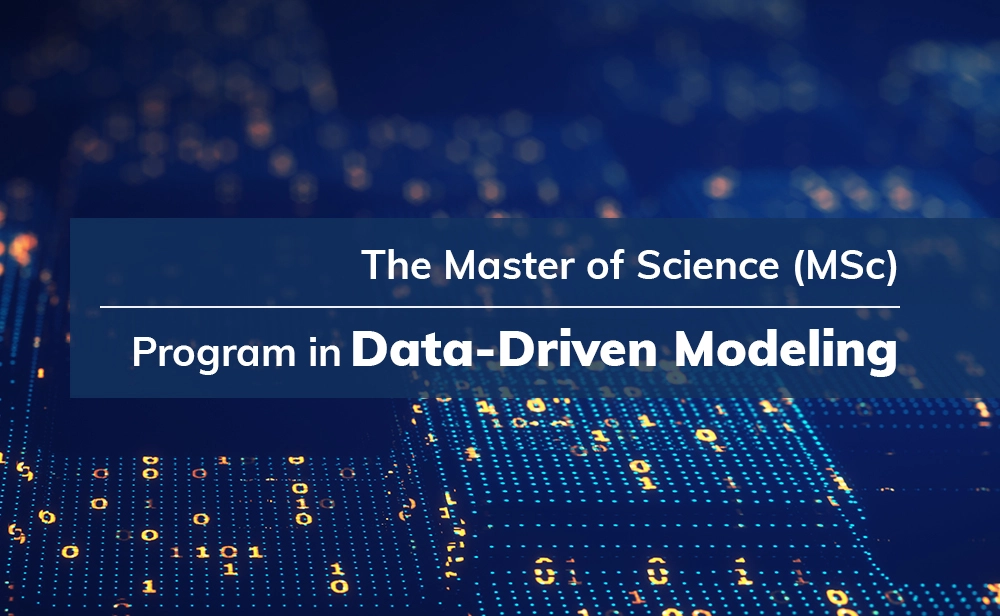Master of Science (MSc) Programmes
Oxford’s Department for Continuing Education offers an extensive range of part-time Master of Science (MSc) Programmes across multiple disciplines. These programmes are specifically designed to provide advanced academic training while allowing students to balance their professional careers and personal commitments. With flexible scheduling, short residencies, and a combination of online and in-person learning, these MSc programmes enable students from around the world to gain world-class knowledge, develop specialized skills, and enhance their career prospects. Students also benefit from Oxford’s distinguished faculty, access to state-of-the-art facilities, and the rich academic resources of the Bodleian Libraries, making these part-time MSc courses a unique opportunity for professional and personal growth.
Materials Science at Oxford University.

Explore Our Courses
Applied Landscape Archaeology
Discover techniques and practices in archaeology with applied landscape studies for a practical approach.
Cognitive Behavioural Therapy
Gain expertise in CBT approaches for effective mental health interventions.
English Local History
Explore the historical developments and cultural heritage of England through focused studies.
Evidence-Based Health Care
Learn practical and research-based approaches for delivering effective health care solutions.
Evidence-Based Health Care Systematic Reviews
Specialize in analyzing medical literature systematically to improve patient care outcomes.
Evidence-Based Health Care Medical Statistics
Develop advanced statistical skills for analyzing clinical and research health data.
Evidence-Based Health Care Teaching and Education
Focus on effective educational strategies for teaching health care principles based on evidence.
Experimental and Translational Therapeutics
Explore cutting-edge research and translate lab findings into clinical applications.
Nanotechnology for Medicine and Health Care
Learn how nanotechnology innovations are applied in modern medicine and therapeutic solutions.
Paediatric Infectious Diseases
Specialize in diagnosing and treating infectious diseases in children.
Surgical Science and Practice
Develop hands-on skills and theoretical knowledge in modern surgical practices.
Sustainable Urban Development
Learn to design and plan urban environments with sustainability and modern needs in mind.
Translational Health Sciences (Full/Part-Time)
Bridge the gap between medical research and clinical application through flexible study options.
What is a MSc?
The term Master of Science (MSc) Programmes refers to postgraduate degrees awarded in science or social science fields. These programmes are designed for students looking to deepen their expertise and advance their careers.
Level and Demands
Applicants are generally expected to have a first degree or an equivalent qualification, although in some cases, other evidence of suitability may be accepted. Detailed entry requirements can be found on each individual Master of Science (MSc) Programmes page.
Students enrolled in Master of Science (MSc) Programmes are not required to be resident in Oxford full-time but are usually expected to attend short residencies as part of their studies. In addition to MSc programmes, Oxford also offers postgraduate certificates, postgraduate diplomas, Master of Studies degrees (MSt), and DPhil programmes.
College Affiliation
All students pursuing a degree, including those enrolled in Master of Science (MSc) Programmes, must be members of an Oxford college. Applications for MSc programmes are submitted through a single application system, within which you can indicate your college preference. Your choice of college does not affect the academic assessment of your Master of Science (MSc) Programmes application.
Some colleges accept applications from part-time postgraduates, while others do not. Please consult the graduate prospectus or contact individual colleges for guidance. Even if you are accepted into the programme, a place at your first-choice college is not guaranteed.
Most part-time students are members of Kellogg College, which specializes in supporting graduate part-time students. Many tutors and lecturers for Master of Science (MSc) Programmes are Fellows of Kellogg, providing expertise in intellectual, social, IT, and welfare support. The college is conveniently located near the Department on Banbury Road.
Libraries and Computing Facilities
Registered students receive an Oxford University card, valid for one year, which doubles as a library card for the Departmental Library at Rewley House. It also grants access to the Bodleian Libraries, including the central Bodleian, major research libraries such as the Sackler Library, Taylorian Institution Library, Bodleian Social Science Library, and faculty libraries like English and History.
Students enrolled in Master of Science (MSc) Programmes can access a wide range of electronic resources, including journals available remotely. They are entitled to use the Rewley House Library for reference, private study, and borrowing books. More information about the Continuing Education Library is available on the Bodleian website.
The University card also provides access to Oxford University Computing Service (OUCS) facilities at 13 Banbury Road. Computing facilities are available in the Students’ Computing Facility at Rewley House and Ewert House, ensuring that students in Master of Science (MSc) Programmes have the resources needed for research and study.
